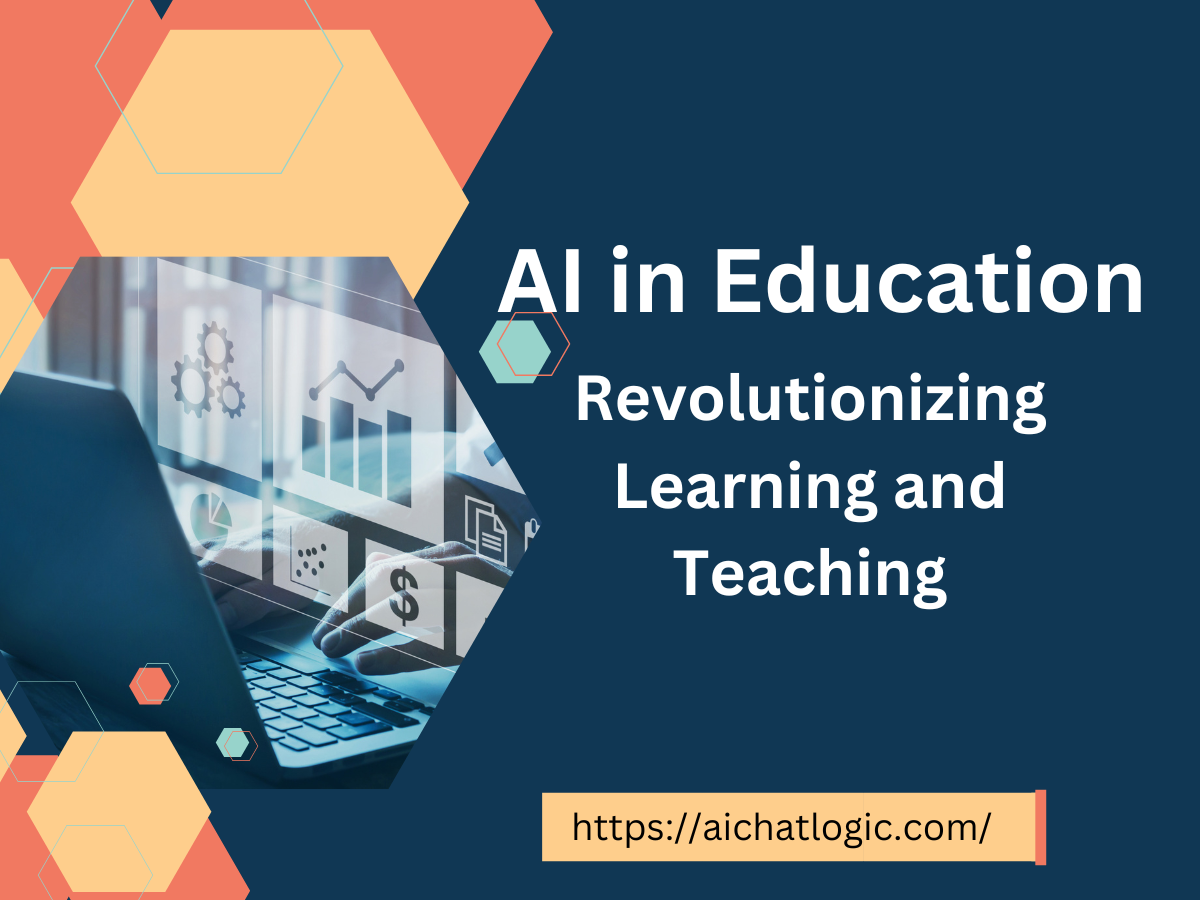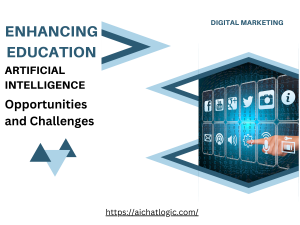Introduction
Artificial Intelligence (AI) is revolutionizing various industries, and education is no exception. With its ability to process vast amounts of data, learn patterns, and make intelligent decisions, AI is transforming the way we learn and teach. In this article, we will explore the impact of AI in education and how it is reshaping the learning and teaching experience.
The Role of AI in Education
Enhancing Personalized Learning
One of the significant advantages of AI in education is its capacity to provide personalized learning experiences. AI-powered systems can analyze individual student data, such as learning styles, preferences, and performance, to tailor educational content and activities accordingly. By adapting the curriculum to each student’s needs, AI enables more efficient and effective learning.
Intelligent Tutoring Systems
AI also plays a crucial role in the development of intelligent tutoring systems. These systems leverage machine Learning and Teaching algorithms to simulate human tutoring by providing personalized guidance and feedback to students. Intelligent tutoring systems can identify knowledge gaps, track progress, and offer targeted assistance, thereby enhancing students’ understanding and mastery of subjects.
Automated Grading and Feedback
Traditionally, grading assignments and providing feedback has been a time-consuming task for educators. However, AI streamlines this process by automating grading and providing instant feedback. Natural Language Processing algorithms can evaluate written responses, while machine learning models can assess multiple-choice questions. By automating grading, educators can focus more on instructional activities and provide timely feedback to students.
AI-Powered Educational Tools
Virtual Reality and Augmented Reality
Virtual Reality (VR) and Augmented Reality (AR) have gained popularity in the education sector due to their immersive and interactive nature. VR and AR technologies enable students to experience virtual simulations, explore complex concepts, and engage in hands-on learning. For example, VR can transport students to historical events or simulate scientific experiments, enhancing their understanding and retention of knowledge.
Adaptive Learning Platforms
Adaptive learning platforms leverage AI algorithms to create personalized learning pathways for students. These platforms assess students’ strengths and weaknesses and dynamically adjust the content and difficulty level to optimize learning outcomes. By providing tailored content and continuous assessment, adaptive learning platforms promote self-paced learning and encourage students to take ownership of their education.
Natural Language Processing
Natural Language Processing (NLP) is a branch of AI that focuses on enabling computers to understand and process human language. In education, NLP facilitates intelligent language tutoring, automated essay scoring, and language translation. NLP-powered tools can analyze students’ written responses, assess grammar and vocabulary, and provide language improvement suggestions.
Smart Content Creation
AI-powered tools can assist educators in creating engaging and interactive learning materials. These tools can generate quizzes, interactive presentations, and multimedia content that cater to diverse Learning and Teaching styles. By automating content creation, AI empowers educators to focus on instructional strategies and innovative teaching methods.
Benefits of AI in Education
Improved Learning Outcomes
By personalizing learning experiences, AI helps improve learning outcomes. Students receive customized instruction based on their individual needs, allowing them to grasp concepts more effectively. Additionally, adaptive learning platforms and intelligent tutoring systems enable students to learn at their own pace, resulting in deeper understanding and better retention of knowledge.
Individualized Instruction
AI enables individualized instruction by providing targeted support and feedback to students. Intelligent tutoring systems can identify students’ areas of weakness and offer tailored guidance, allowing them to overcome challenges and build a strong foundation. This personalized approach to instruction fosters student engagement and promotes academic growth.
Efficient Administrative Tasks
AI streamlines administrative tasks in educational institutions, freeing up valuable time for educators and administrators. Automated grading, data analysis, and scheduling systems reduce the administrative burden, enabling educators to dedicate more time to teaching and mentoring students. Furthermore, AI-powered analytics provide valuable insights into student performance and help identify areas that require improvement.
Ethical Considerations and Challenges
While AI brings numerous benefits to education, it also presents ethical considerations and challenges that need to be addressed.
Privacy and Data Security
AI relies on collecting and analyzing vast amounts of data, including personal information about students. Ensuring privacy and data security is crucial to prevent unauthorized access or misuse of sensitive data. Educational institutions must implement robust data protection measures and adhere to privacy regulations to maintain the trust of students and parents.
Equity and Access
AI should be used to bridge the educational equity gap rather than exacerbate it. It is essential to ensure equal access to AI-powered tools and resources for all students, regardless of their socioeconomic background or geographical location. Efforts should be made to provide equal opportunities and address any potential bias in AI algorithms.
Ethical Use of AI
As AI becomes more integrated into education, it is vital to ensure its ethical use. AI systems should be designed and deployed with transparency and accountability. Educators and policymakers need to establish guidelines and ethical frameworks to govern the development and implementation of AI in education, safeguarding against potential misuse or discrimination.
The Future of AI in Education
The potential of AI in education is vast, and its future holds tremendous promise. As technology advances, AI will continue to evolve and transform the learning and teaching landscape. We can expect further advancements in adaptive learning platforms, virtual reality simulations, intelligent content creation, and personalized tutoring. AI will empower educators and students alike, facilitating a more engaging, effective, and inclusive educational experience.
Conclusion
AI is revolutionizing education by enhancing personalized learning, providing intelligent tutoring systems, automating grading and feedback, and offering powerful educational tools. The benefits of AI in education include improved learning outcomes, individualized instruction, and more efficient administrative tasks. However, ethical considerations such as privacy, equity, and ethical use need to be addressed to ensure responsible implementation. With the continuous advancements in AI technology, the future of education holds exciting possibilities, empowering students and educators to embrace new horizons.
FAQs
- How is AI being used in classrooms?
- AI is used in classrooms through personalized learning, intelligent tutoring systems, and automated grading.
- Can AI replace teachers?
- AI cannot replace teachers entirely but can support and enhance their instructional abilities.
- What are the potential drawbacks of AI in education?
- Drawbacks include privacy concerns, biased algorithms, and potential lack of human interaction.
- How can AI improve student engagement?
- AI can improve student engagement by providing personalized content, interactive experiences, and adaptive learning pathways.
- Are there any risks associated with AI in education?
- Risks include data security breaches, algorithmic bias, and over-reliance on technology.










+ There are no comments
Add yours